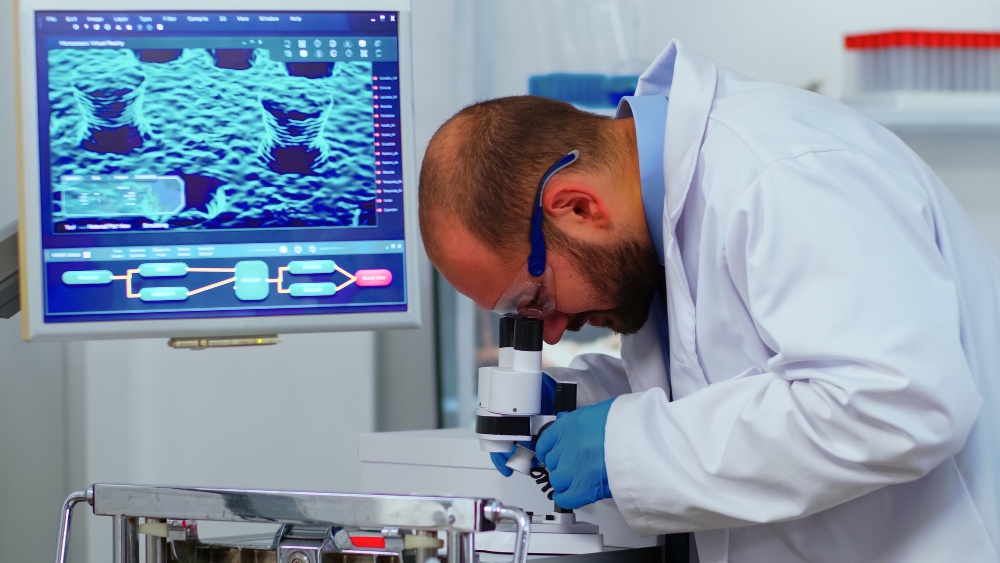The pharmaceutical industry is continually seeking innovative ways to streamline drug discovery processes and bring life-saving treatments to market more rapidly. Virtual screening services have emerged as a valuable tool in this quest, providing a means to identify promising drug candidates more efficiently than traditional methods.
Recently, deep learning has been introduced as a powerful technique to further enhance the capabilities of virtual screening, unlocking new possibilities for accelerated drug discovery.
In this article, we'll explore how deep learning is revolutionizing virtual screening for drug discovery.
The Basics of Virtual Screening
In order to find chemical substances that may be associated with a particular biological target, such as a protein or enzyme, researchers use a computational method called virtual screening.
Researchers can save time and money by concentrating their efforts on the most potential prospects by reducing the number of prospective candidates.
Virtual screening can be split into two major strategies:
- ligand-based virtual screening, which is based on the knowledge of active substances that are already known to exist, and
- structure-based virtual screening, which makes use of the target protein's three-dimensional structure.
Deep Learning and Its Applications in Drug Discovery
Deep learning is a branch of artificial intelligence that teaches neural networks to identify patterns and anticipate outcomes based on large amounts of complex data.
This cutting-edge technology has been getting a lot of momentum in a number of sectors, including healthcare and pharmaceuticals, where it has the potential to completely change the process of finding new drugs.
- Predicting the binding propensity of substances to target proteins is one of the major uses of deep learning in drug development.
- Identifying possible safety problems or off-target impacts.
- The creation of new, valuable substances.
- Optimizing drug candidates to enhance their pharmacokinetic and pharmacodynamic profiles.
How Deep Learning Enhances Virtual Screening
Deep learning can significantly improve virtual screening processes by increasing accuracy, speed, and efficiency. Here are some ways in which deep learning accelerates virtual screening for drug discovery:
a. Improved Prediction Accuracy
Traditional virtual screening methods rely on heuristic algorithms and simple descriptors to evaluate compound libraries. These approaches can often suffer from limited accuracy, leading to false positives and negatives.
Deep learning, on the other hand, can process vast amounts of complex data, capturing intricate patterns and relationships between molecular structures and their biological activities.
This allows for more accurate predictions of compound-target interactions and a higher success rate in identifying promising drug candidates.
b. Faster Screening
Deep learning algorithms can process vast amounts of data in parallel, enabling them to evaluate large compound libraries more rapidly than traditional methods.
This accelerated screening process allows researchers to quickly identify and prioritize leads for further investigation, streamlining the drug discovery process.
c. Adaptability and Scalability
Deep learning models can be easily adapted to handle different types of data and target proteins, making them highly versatile tools in drug discovery.
Additionally, these models can be scaled to accommodate growing compound libraries, ensuring that they remain effective as the volume of available data increases.
d. De Novo Drug Design
Deep learning can also be used to generate novel compounds with desirable properties, essentially designing new drug candidates from scratch.
By training models on known active compounds and their properties, deep learning algorithms can generate new structures with similar characteristics, potentially leading to the discovery of innovative therapeutics.
Conclusion
The integration of deep learning into virtual screening services has the potential to revolutionize the drug discovery process, enabling researchers to identify promising drug candidates more quickly and accurately than ever before.
By harnessing the power of advanced artificial intelligence techniques, pharmaceutical companies can streamline their R&D efforts, ultimately bringing life-saving treatments to patients more rapidly.
As deep learning continues to evolve and mature, its impact on virtual screening and drug discovery is expected to grow, ushering in a new era of innovation and progress in the pharmaceutical industry.


No comments yet